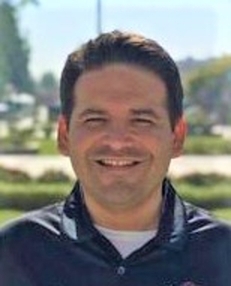I Am A Researcher!
McNair alum, Dr. Joaquin Camacho, wins NSF CAREER grant!

Dr. Joaquin Camacho transferred to UC San Diego from Mt. San Antonio College. He participated in the McNair program in 2007 and earned his BS in chemical engineering from UC San Diego in 2008. In 2013, he earned his PhD in mechanical engineering from the University of Southern California. From 2013-2016, Dr. Camacho was a postdoctoral research fellow at Stanford University. He is currently an assistant professor of mechanical engineering at San Diego State University.
In January 2022, Dr. Camacho won a $500,000 NSF CAREER grant for research on "Progression from soot to nanocrystalline carbon in elevated temperature flames."
Abstract from grant award:
Soot formation remains a crucial factor in combustion performance, public health and the environment. There is a rising need to characterize soot formation in extremely hot flames due to prominence of kerosene-fueled rockets, oxy-fuel combustion systems and other emerging combustion processes. The scientific objective is to shed light on soot formation in flames hotter than traditionally studied. A complementary experimental and computational modeling approach will be used to isolate fundamental phenomena unique to this soot formation regime. Imminent space cargo and tourism enterprises require soot models for rocket thruster design and particulate emissions predictions. Nanocrystalline carbon forms during rocket flight powered by kerosene and other hydrocarbon propellants. A more thorough consideration of performance and unknown environmental impacts (i.e. public health, climate, etc.) is facilitated by studying soot formation at elevated temperature. High temperature oxyfuel combustion, preheated air systems and enriched air processing are also examples of emerging combustion technologies operating hotter than conventional combustion. In terms of societal impact, the urgent need for more inclusive participation in graduate school and academic careers will be enhanced through collaboration with the McNair program and Bridges Community College program. Virtual teaching modules for thermofluids theory and applications will also be developed to increase participation of local high-school students.
Quantification of competing soot formation processes remains a challenge. Fuel-rich flame chemistry models leading to gas-phase soot precursors vary widely for conventional combustion temperatures and no studies for elevated temperature flames exist. The same can be said for the underlying aerosol dynamics and evolution in soot nanostructure. The central hypothesis is that quantification of reversible soot precursor reactions, reduction in collision efficiency, extreme particle graphitization and, perhaps, ionization processes are required to accurately capture soot behavior at elevated temperatures. At the conclusion of the proposed activities the PI will have: (i) systematically measured individual PAH profiles and soot particle size distributions in well-characterized laminar and turbulent laboratory flames; (ii) characterized evolution in carbon nanostructure and morphology for particles formed in elevated temperature flames; (iii) assessed the role of ionization processes on soot formation in this regime; (iv) incorporated new experimental observations into new models for higher temperature soot formation; (v) demonstrated unique higher-temperature processes governing the transition from soot to newly discovered nanocrystalline carbon structure. The proposed project is significant because self-consistent development of soot formation theory will be facilitated by the comprehensive experimental and modeling approach for the benefit of conventional and higher-temperature regimes.